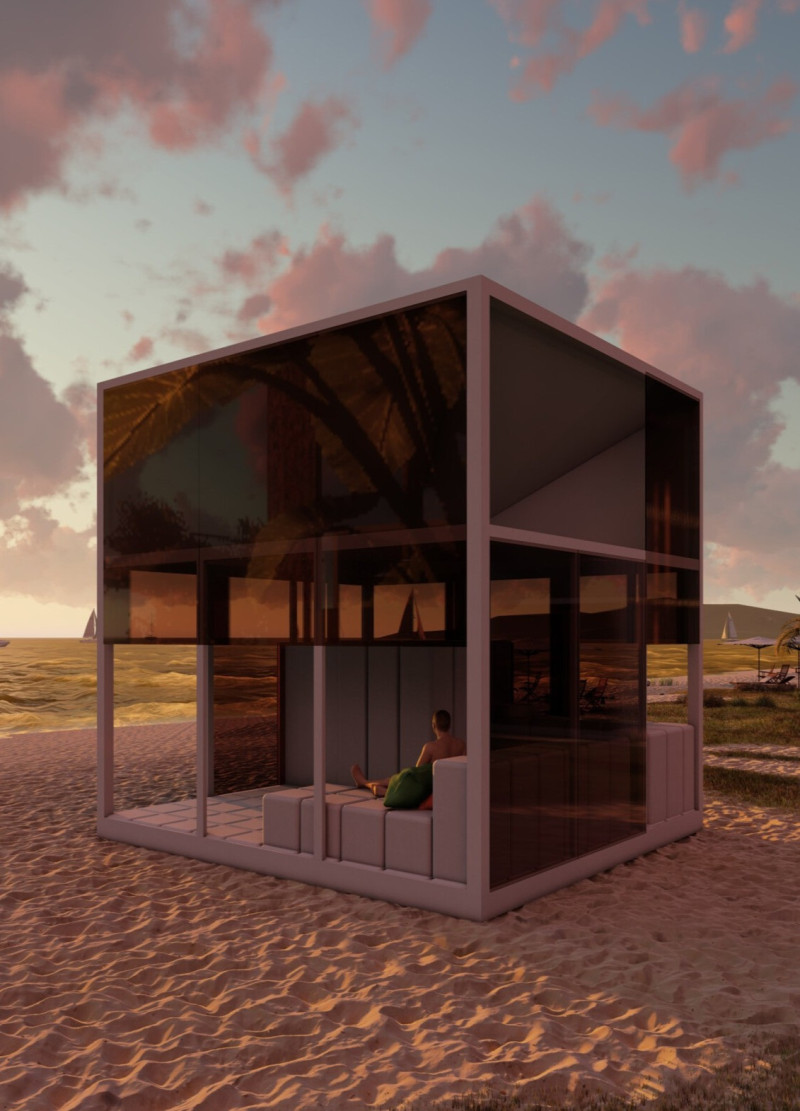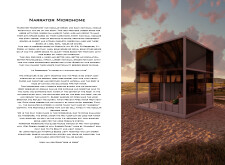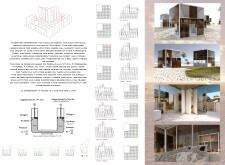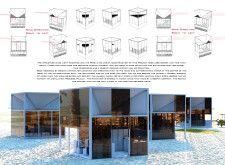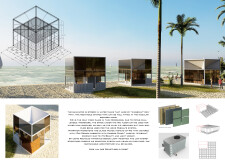5 key facts about this project
**Overview**
The Narrator Microhome is a residential design project situated in a coastal environment, emphasizing personalization, sustainability, and efficient resource management. By enabling residents to mold their living spaces through modularity and adaptive design, the project aims to redefine conventional housing concepts. Each module serves a specific function, allowing inhabitants to adjust their surroundings according to their evolving needs.
**Modular Strategy**
The design capitalizes on modularity, with each individual module functioning as an independent unit. These modules can be reconfigured for diverse uses, including living spaces, sleeping quarters, kitchens, and home offices. The principles of Pascal's Law guide the lightweight structure, promoting effective air circulation and optimizing views while maximizing utility for various activities. This adaptability aligns with the notion that a home functions as a mechanism to support daily life.
**Sustainable Material Selection**
The selection of materials in the Narrator Microhome reflects a focus on environmental responsibility and functionality. Recycled plastics are extensively used in both the construction of modules and furnishings, minimizing ecological impact. The roofing system incorporates canvas, strategically designed to enhance airflow and support natural cooling. Galvanized steel pipe is employed for durability in rainwater collection and plumbing systems, while modular water tanks from Kingspan facilitate efficient rainwater management. This thoughtful integration of materials contributes to the home’s overall sustainability and cost-effectiveness.
The design also features multiple unique elements, such as modular boxes that can transform into various functional spaces and an air circulation system that supports natural ventilation, enhancing occupant comfort while reducing reliance on artificial cooling. The effective integration of these systems ensures a harmonious balance between efficiency, user experience, and environmental stewardship.


